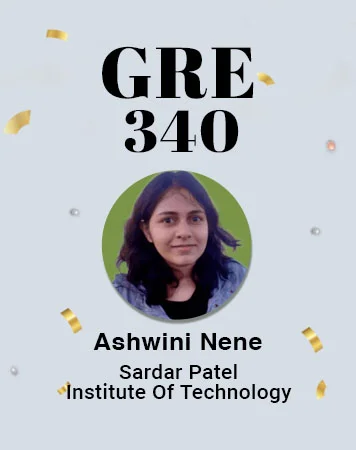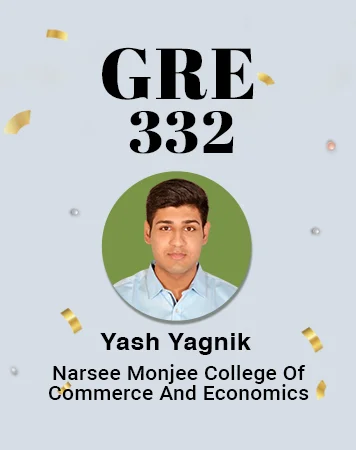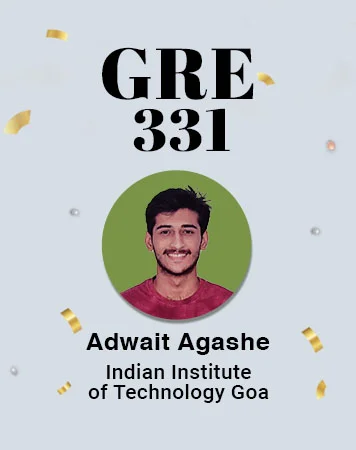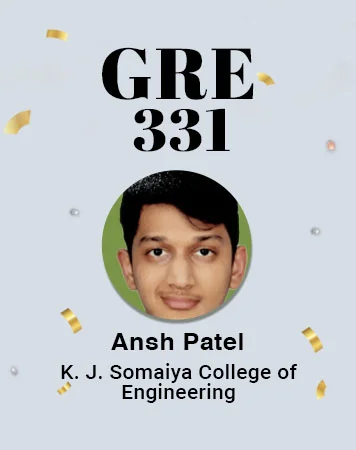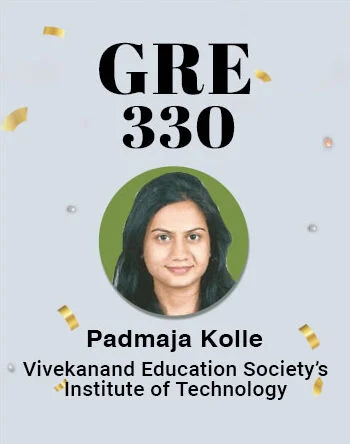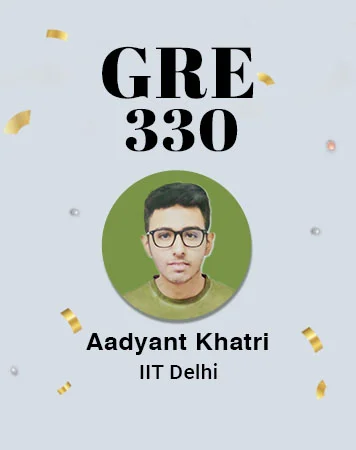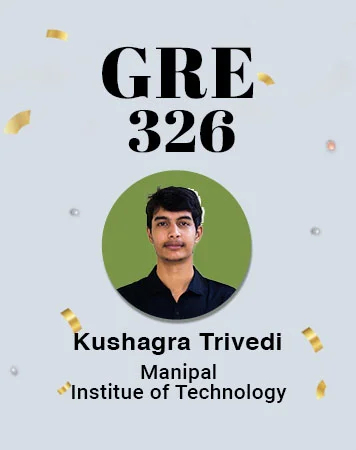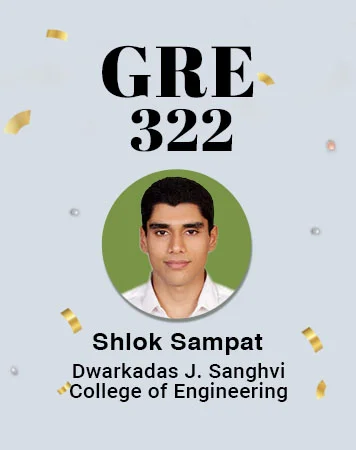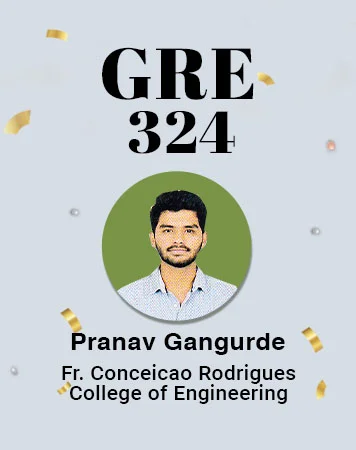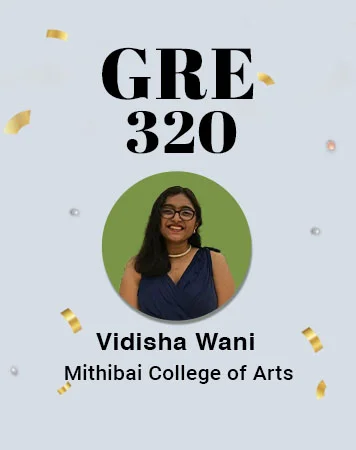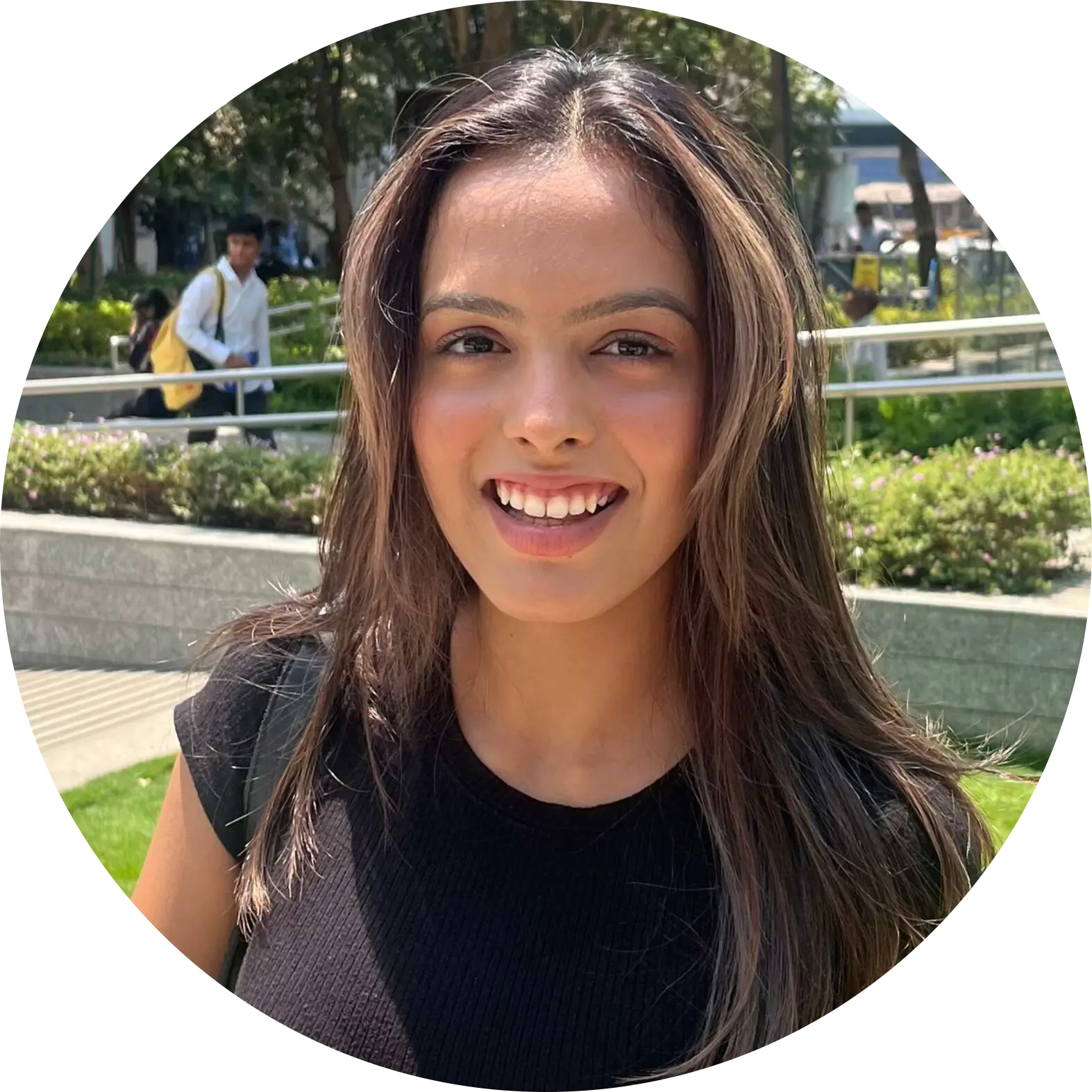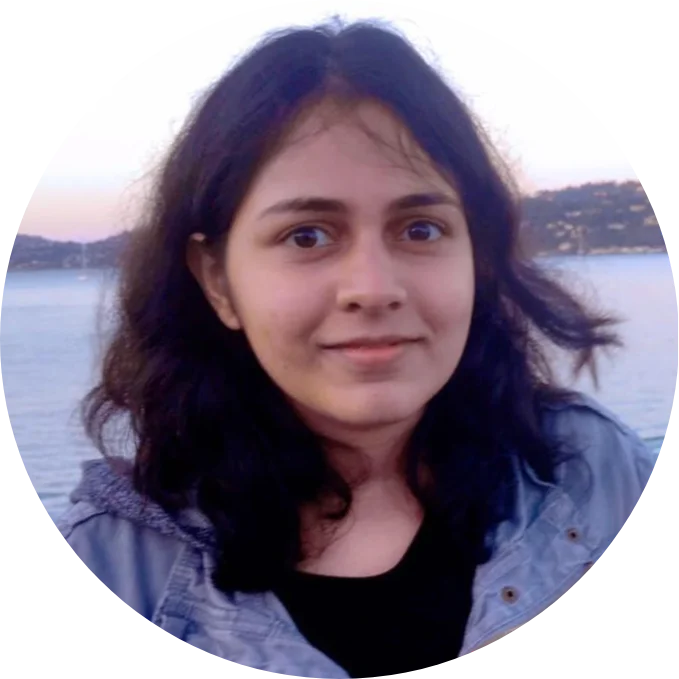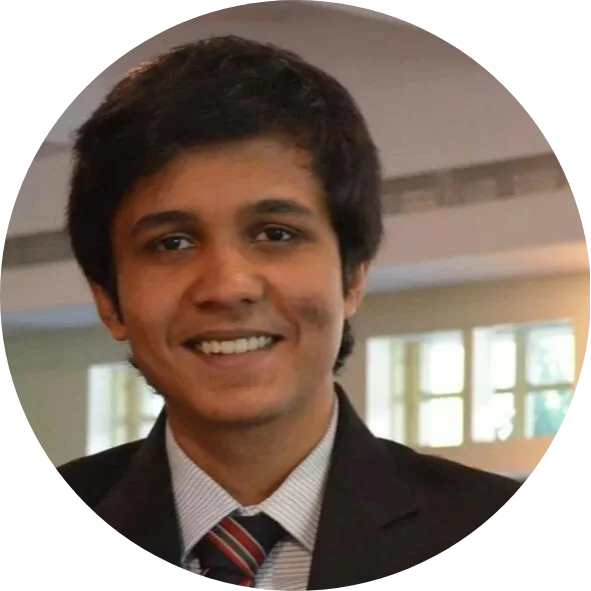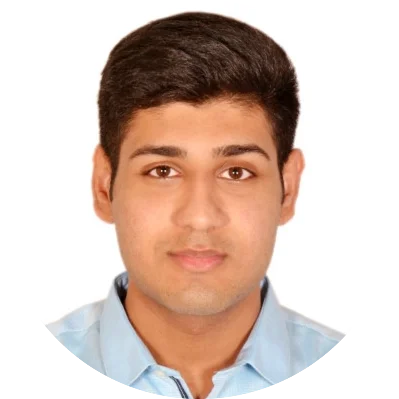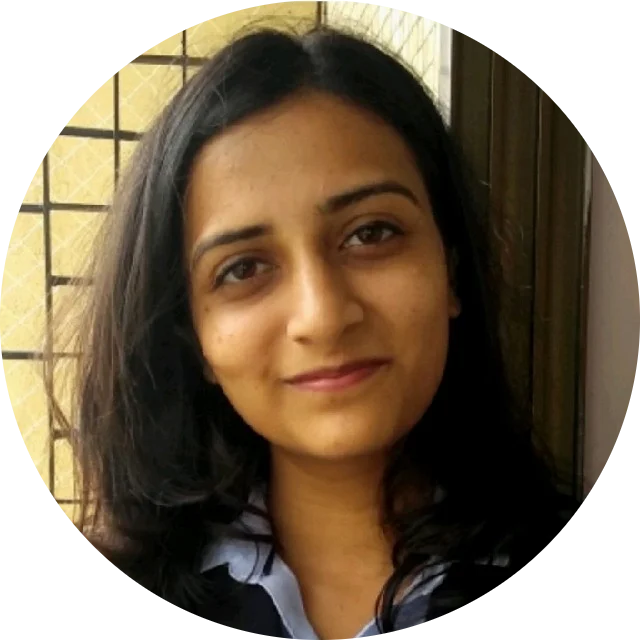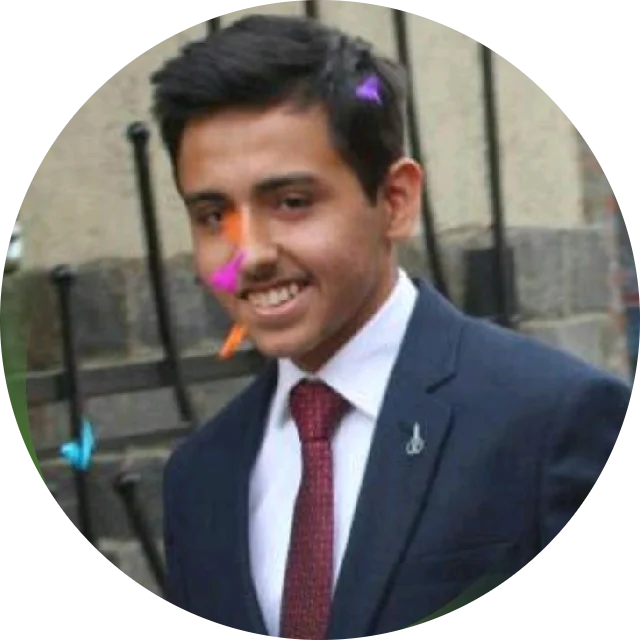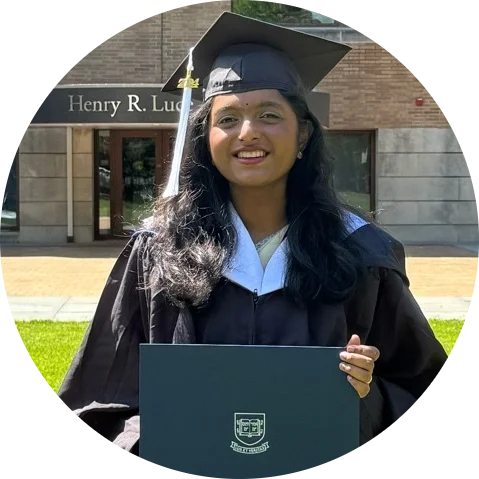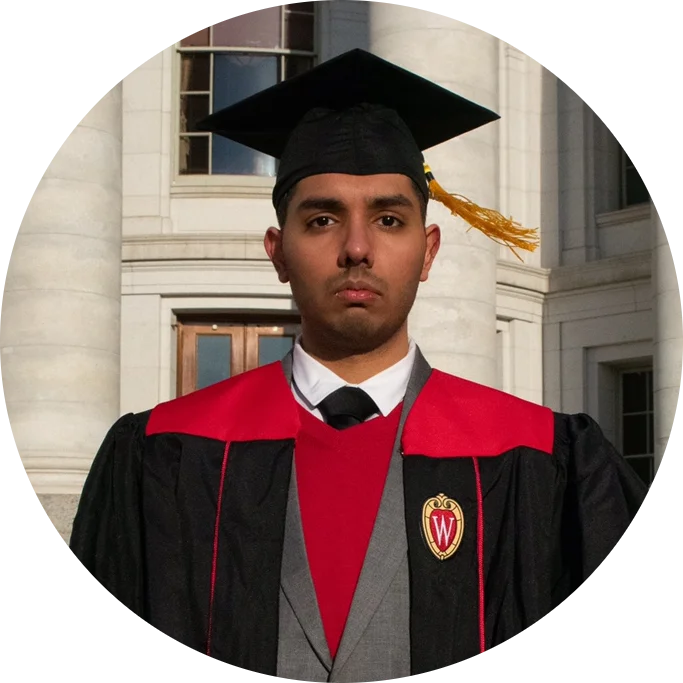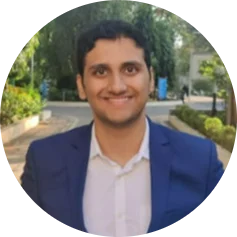CHOOSE THE GRE TEST PREP PROGRAM THAT SUITS YOU BEST
Customised GRE Exam Preparation Plans for Flexible, Adaptable Learning.
4 REASONS WHY THE BEST STUDENTS CHOOSE INSPIRUS FOR THEIR GRE PREP

Individiual Attention
With small batches and interactive teachers, we ensure each student gets the attention they require to elevate their score to 320+.

Customised Learning Programs
Your learning plan is personalised based on the result of the diagnostic test that you take at the beginning of the GRE prep program.

Exhaustive Study Material
With lectures, books, PPTs, practice modules, and sectional and full-length tests, our study material will ensure you’ve gained mastery over every GRE topic.

Full-Length GRE Mock Tests
Apart from the initial diagnostic test, you will also get to test yourself with 12 full-length adaptive GRE mock tests to give you the best chance at a 320+ score in the actual GRE.
OUR RECENT HIGH SCORES
| Name of the Student | School | City | Score |
|---|---|---|---|
| Ashwini Nene | Sardar Patel Institute Of Technology | Mumbai | 340 |
| Pranav Kundra | Sardar Patel Institute of Technology | Mumbai | 338 |
| Nishant Rodrigues | Xavier Institute of Engineering | Mumbai | 336 |
| Shreyas Mundra | Nanyang Technological University | Mumbai | 336 |
| Aumkar Gadekar | Sardar Patel Institute of Technology | Mumbai | 335 |
| Harsh Desai | Sardar Patel Institute of Technology | Mumbai | 334 |
| Rudresh Panchal | DJ. Sanghvi College of Engineering | Mumbai | 334 |
| Shubham Mangalvedhe | Sardar Patel Institute Of Technology | Mumbai | 334 |
| Anish Dixit | Sardar Patel Institute of Technology | Mumbai | 333 |
| Dhyey Mehta | DJ. Sanghvi College of Engineering | Mumbai | 333 |
| Ajinkya Mohgaonkar | IIT Bombay | Nashik | 333 |
| Aurelius Fernandes | D. J. Sanghvi College Of Engineering | Mumbai | 332 |
| Pallavi Kulkarni | Sardar Patel Institute of Technology | Mumbai | 332 |
| Raoul Chandnani | Sardar Patel College of Engineering | Mumbai | 332 |
| Som Phene | Indian Institutes of Technology | Mumbai | 332 |
| Tania Rajabally | Sardar Patel Institute of Technology | Mumbai | 332 |
| Adwait Agashe | IIT Goa | Nashik | 331 |
| Ansh Patel | K. J. Somaiya College of Engineering | Mumbai | 331 |
| Anushka Poddar | 331 | ||
| Dhruva Gaidhani | 331 | ||
| Saransh Jain | Thadomal Shahani Engineering College | Mumbai | 331 |
| Vivek Joshi | NMIMS | Mumbai | 331 |
| Aadyant Khatri | Indian Institutes of Technology | New Delhi | 330 |
| Abhishek Revadekar | Sardar Patel Institute of Technology | Mumbai | 330 |
| Akanshi Mody | D. J. Sanghvi College Of Engineering | Mumbai | 330 |
| Harin Vashi | DJ. Sanghvi College of Engineering | Mumbai | 330 |
| Krishiraj Chandrana | NMIMS | Mumbai | 330 |
| Kunal Mehta | NMIMS | Mumbai | 330 |
| Sanidhya Sharma | Vidya Jyothi Institute of Technology (VJIT) | Mumbai | 330 |
| Suhani Singhal | Sardar Patel Institute of Technology | Mumbai | 330 |
| Surbhi Kadam | Sardar Patel Institute of Technology | Mumbai | 330 |
| Vignesh Venugopal | D. J. Sanghvi College Of Engineering | Mumbai | 330 |
| DEVASHREE MEHTA | Sardar Patel Institute of Technology | Mumbai | 329 |
| Het Padachh | Sardar Patel Institute Of Technology | Mumbai | 329 |
| HITALI SHETH | Sardar Patel Institute of Technology | Mumbai | 329 |
| NEEHARIKA ACHARYA | Sardar Patel Institute of Technology | Mumbai | 329 |
| PARTH PAREKH | Sardar Patel Institute of Technology | Mumbai | 329 |
| Pranav Natu | BITS Goa | Mumbai | 329 |
| Pruthvi Ramesh | DBIT | Mumbai | 329 |
| Reeya Pimple | D. J. Sanghvi College Of Engineering | Mumbai | 329 |
| SIDDHARTH JAIN | Sardar Patel Institute of Technology | Mumbai | 329 |
| Siddharth Parikh | Thadomal Shahani Engineering College | Mumbai | 329 |
| VAIBHAV TENDULKAR | Sardar Patel Institute of Technology | Mumbai | 329 |
| Vir Jhangiani | Ashoka University | Mumbai | 329 |
| Ankit Morajkar | Sardar Patel Institute of Technology | Mumbai | 328 |
| RAUNAQ ABHYANKAR | Sardar Patel Institute of Technology | Mumbai | 328 |
| Savitri Sagar | Stevens Institute of Technology | USA | 327 |
| Abhishek Deshmukh | D. J. Sanghvi College Of Engineering | Mumbai | 327 |
| Jash Gaglani | K. J. Somaiya College of Engineering | Mumbai | 327 |
| Krish Matreja | Sardar Patel Institute of Technology | Mumbai | 327 |
| Maitreyi Chitale | D. J. Sanghvi College Of Engineering | Mumbai | 327 |
| Shonak Bhattacharya | DJ. Sanghvi College of Engineering | Mumbai | 327 |
| Shriya Akella | Sardar Patel Institute of Technology | Mumbai | 327 |
| Tanvi Dhope | Sardar Patel Institute of Technology | Mumbai | 327 |
| Vedant Shroff | K. J. Somaiya College of Engineering | Mumbai | 327 |
| Aditya Gune | D. J. Sanghvi College Of Engineering | Mumbai | 326 |
| Chinmay Aras | D. J. Sanghvi College Of Engineering | Mumbai | 326 |
| Devanksh Shah | Shah & Anchor Kutchhi Engineering College | Mumbai | 326 |
| Kushagra Trivedi | Manipal Institue of Technology | Kolkata | 326 |
| Mansi Panchamia | D. J. Sanghvi College Of Engineering | Mumbai | 326 |
| MEET NATHWANI | Sardar Patel Institute of Technology | Mumbai | 326 |
| RIA MAHESHWARI | Sardar Patel Institute of Technology | Mumbai | 326 |
| Sunit Vaidya | Sardar Patel Institute of Technology | Mumbai | 326 |
| Kashish Hemrajani | Sardar Patel Institute of Technology | Mumbai | 325 |
| CHAITANYA BAPAT | Sardar Patel Institute of Technology | Mumbai | 325 |
| Harsh Jain | Sardar Patel Institute of Technology | Mumbai | 325 |
| Krutika Jain | NMIMS | Mumbai | 325 |
| Smeet Cheeda | K. J. Somaiya College of Engineering | Mumbai | 325 |
| Akash Bhat | Thadomal Shahani Engineering College | Mumbai | 324 |
| Anush Ananthakumar | Thadomal Shahani Engineering College | Mumbai | 324 |
| Anushananth Kumar | Thadomal Shahani Engineering College | Mumbai | 324 |
| Anushree Vaidya | Rajiv Gandhi Institute of Technology | Mumbai | 324 |
| Ian Sequeira | Vivekanand Education Society's Institute Of Technology | Mumbai | 324 |
| Ilina Gupta | D. J. Sanghvi College Of Engineering | Mumbai | 324 |
| Kaiz Merchant | D. J. Sanghvi College Of Engineering | Mumbai | 324 |
| Khushabh Thakar | Thadomal Shahani Engineering College | Mumbai | 324 |
| PRACHI SHAH | Sardar Patel Institute of Technology | Mumbai | 324 |
| Pranav Gangurde | Fr. Conceicao Rodrigues College of Engineering | Mumbai | 324 |
| Samarth Shah | D. J. Sanghvi College Of Engineering | Mumbai | 324 |
| Siddhi Khade | Shah & Anchor Kutchhi Engineering College | Mumbai | 324 |
| Tejaswin Gumber | D. J. Sanghvi College Of Engineering | Mumbai | 324 |
| Mihir Seth | K. J. Somaiya College of Engineering | Mumbai | 323 |
| PIYUSH SARAVGI | Sardar Patel Institute of Technology | Mumbai | 323 |
| Tanaya Kambli | Sardar Patel Institute of Technology | Mumbai | 323 |
| ZAID EBRAHIM | Sardar Patel Institute of Technology | Mumbai | 323 |
| Karan Lala | Thadomal Shahani Engineering College | Mumbai | 322 |
| Mitash Shah | Sardar Patel Institute of Technology | Mumbai | 322 |
| Nikita Varde | Narsee Monjee College | Mumbai | 322 |
| Nirman Tatereh | K. J. Somaiya College of Engineering | Mumbai | 322 |
| Parth Jardosh | Sardar Patel Institute of Technology | Mumbai | 322 |
| Pranav Chitale | Sardar Patel Institute of Technology | Mumbai | 322 |
| PRASSANA DESHMUKH | Sardar Patel Institute of Technology | Mumbai | 322 |
| RAJAT GIRI | Sardar Patel Institute of Technology | Mumbai | 322 |
| Shlok Sampat | D. J. Sanghvi College Of Engineering | Mumbai | 322 |
| Abhishek Dhotre | DJ. Sanghvi College of Engineering | Mumbai | 321 |
| Avais Pagarkar | D. J. Sanghvi College Of Engineering | Mumbai | 321 |
| HIMANSHU WAD | Sardar Patel Institute of Technology | Mumbai | 321 |
| Kimaya Rajwade | D. J. Sanghvi College Of Engineering | Mumbai | 321 |
| Mitanshu Reshamwala | K. J. Somaiya College of Engineering | Mumbai | 321 |
| Utkarsh Bhosekar | Thadomal Shahani Engineering College | Mumbai | 321 |
| Aastha Joshi | D. J. Sanghvi College Of Engineering | Mumbai | 320 |
| Amusha Krishan | VESIT | Mumbai | 320 |
| FAIZAAN C | Sardar Patel Institute of Technology | Mumbai | 320 |
| Gaurav Chawla | K. J. Somaiya College of Engineering | Mumbai | 320 |
| Jeh Shah | NMIMS - Anil Surendra Modi School of Commerce | Mumbai | 320 |
| Ketan Dubey | Thadomal Shahani Engineering College | Mumbai | 320 |
| Pankil Daru | D. J. Sanghvi College Of Engineering | Mumbai | 320 |
| Pradyumna Chsndel | Manipal Institute of Technology (MIT) | Mumbai | 320 |
| Rahil Merchant | NMIMS | Mumbai | 320 |
| Vidisha Wani | Mithibai College of Commerce and Economics | Mumbai | 320 |
ALL YOUR QUESTIONS ABOUT THE GRE ANSWERED
1. What is the GRE test structure?
The GRE tests 3 skills: 1. Analytical Writing 2. Quantitative Reasoning, and 3. Verbal Reasoning The GRE test begins with the analytical writing measure.
The Analytical Writing measure consists of one writing task – Analyze an issue task. You have 30 minutes to type your response. The Analytical writing section is scored from 0-6 points.
Quantitative Reasoning: There will be two Quantitative Reasoning sections on the test with a total of 27 questions and you will have 47 minutes to complete both sections.. The score of the Quantitative Reasoning measure is from 130 to 170 points.
Verbal Reasoning: There will be two Verbal Reasoning sections on the test with a total of 27 questions and you will have 41 minutes to complete both sections. The score of the Verbal Reasoning measure is also from 130 to 170 points.
Shorter GRE Structure
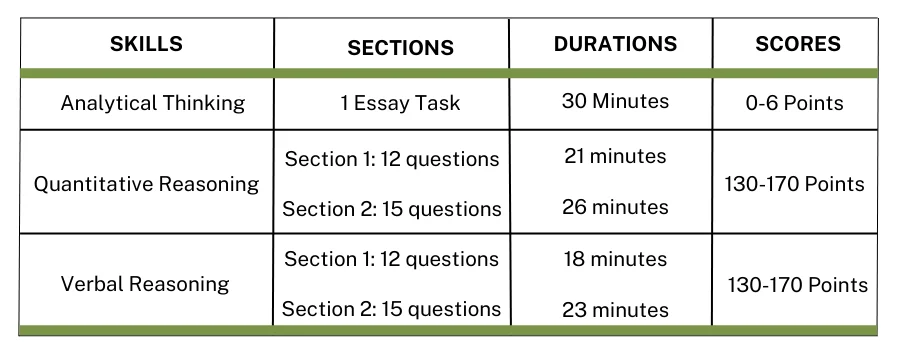
2. How is the GRE scored?
The Quantitative Reasoning section and the Verbal Quantitative Reasoning section are scored on a scale of 130-170 in 1-point increments. The Analytical Writing section is scored on a scale of 0–6 in 0.5 increments.
A good GRE score is considered to be 320+. A solid GRE preparation plan coupled with one-on-one guidance from Inspirus will give you the best chance to breach the 320 mark.
3. How long is the GRE test?
The overall testing time for the GRE ® General Test is about 2 hours. It is crucial for you to get used to the time and format of the GRE test through extensive mock tests. The Inspirus GRE prep program includes 12 full-length adaptive GRE mock tests and 15 sectional tests.
4. How much does the GRE General Test cost?
The GRE® General Test fee varies according to the country. In India, the test fee is ₹ 22,550.
5. How can I register for the GRE?
The easiest way to register is through your ETS account. To create your account, visit: https://www.ets.org/gre
GRE® is a registered trademark of Educational Testing Service.
INSPIRUS GRE PREP FAQS
Your GRE preparation begins here.


